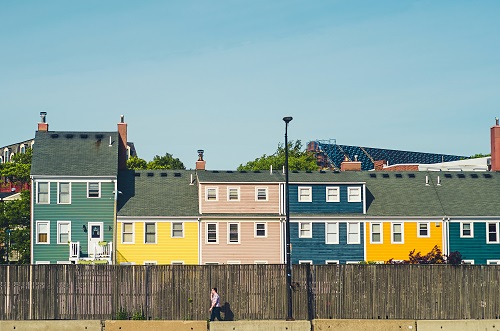Live Where You Live
By Allison McWilliams (’95), Assistant Vice President for Mentoring and Alumni Personal & Career Development, Wake Forest University
One of the hardest things to do as a young professional is learning how to create community in a new and unfamiliar place, particularly when you don’t know anyone there. It can be tempting, when you’re starting out, to take a temporary attitude towards life. You might see yourself as a bit of a free-spirit, ready and willing to go wherever the wind blows next. Or you may not be willing or ready to fully commit to this new place, whether due to a short-term work assignment or uncertainty about what the future might hold.
And, you’re right, there’s no telling what may happen in the next year, the next five years, or the rest of your life. But for now, you need to live where you live. What does this mean? Hang pictures on the walls. Join groups. Volunteer for things. Make connections. Explore. Even if you’re just there for a one-year rotation, or for graduate school with a finite end point, you need to dive in and act like you’re going to be there forever.
First of all, you never know what may happen. You know that old saying? Life is what happens to you while you’re busy making other plans. Don’t get so consumed by the process and the plan that you forget to live. That one-year rotation may turn into a full-time assignment. Graduate school may result in a job offer. A connection may turn into a relationship that impacts your future plans.
The other reason you need to live where you live is that it is just going to make you happier. Make your home a place where you want to be. Hang pictures on the walls, get decent bedding and towels, go buy some nice dishes. Even if you end up leaving and going somewhere else, these are things you will take with you, so they are good investments. Other than work, your home is the place where you will spend the most time, even if it is only to sleep. You want it to be a place where you like to be.
Now, that does not mean buying out the Pottery Barn catalog and going into massive amounts of debt! Be smart about this. But find ways to make your home a place where you are happy, arguably the place where you are the happiest. Even if things aren’t going perfectly at work, especially if things aren’t going perfectly at work, then you want your home to be a place where you are happy, feel safe, and feel comfortable.
But it’s not just about your home. After all, if all you are doing is sitting at home on your very comfortable couch by yourself night after night, then you’re not building much of a life. You also need to think about the relationships in your life, both the ones you already have and how (and if) you will maintain them, and those new relationships you may now choose to cultivate.
As humans, we are inherently social beings. We want to be in community with others. Our lives are enriched by it. As the positive psychology researcher Shawn Achor notes in his book The Happiness Advantage, “when we have a community of people we can count on – spouse, family, friends, colleagues – we multiply our emotional, intellectual, and physical resources. We bounce back from setbacks faster, accomplish more, and feel a greater sense of purpose.” There is much to be gained from being in community with others, both personally and professionally.
As an adult, no one is going to force you into relationships or tell you whom to be friends with. Just like the struggle to find hobbies, finding friends, good, real friends who align with your values, can be one of the greatest challenges adults face.
This is when you need to remember that you here you have been in this place before. You have had to make friends before. You know how to do this, you just may not remember doing it, because we tend to block out the challenging and difficult times and focus on the happier ones. And, of course, unlike college, you’re now lacking some of the social supports like resident hall life and organized social interactions, which forced you into community with others and provided opportunities to meet new people and to make new friends. Now you have to build those things into your life for yourself. You have to take ownership for your life. You need to live where you live.

